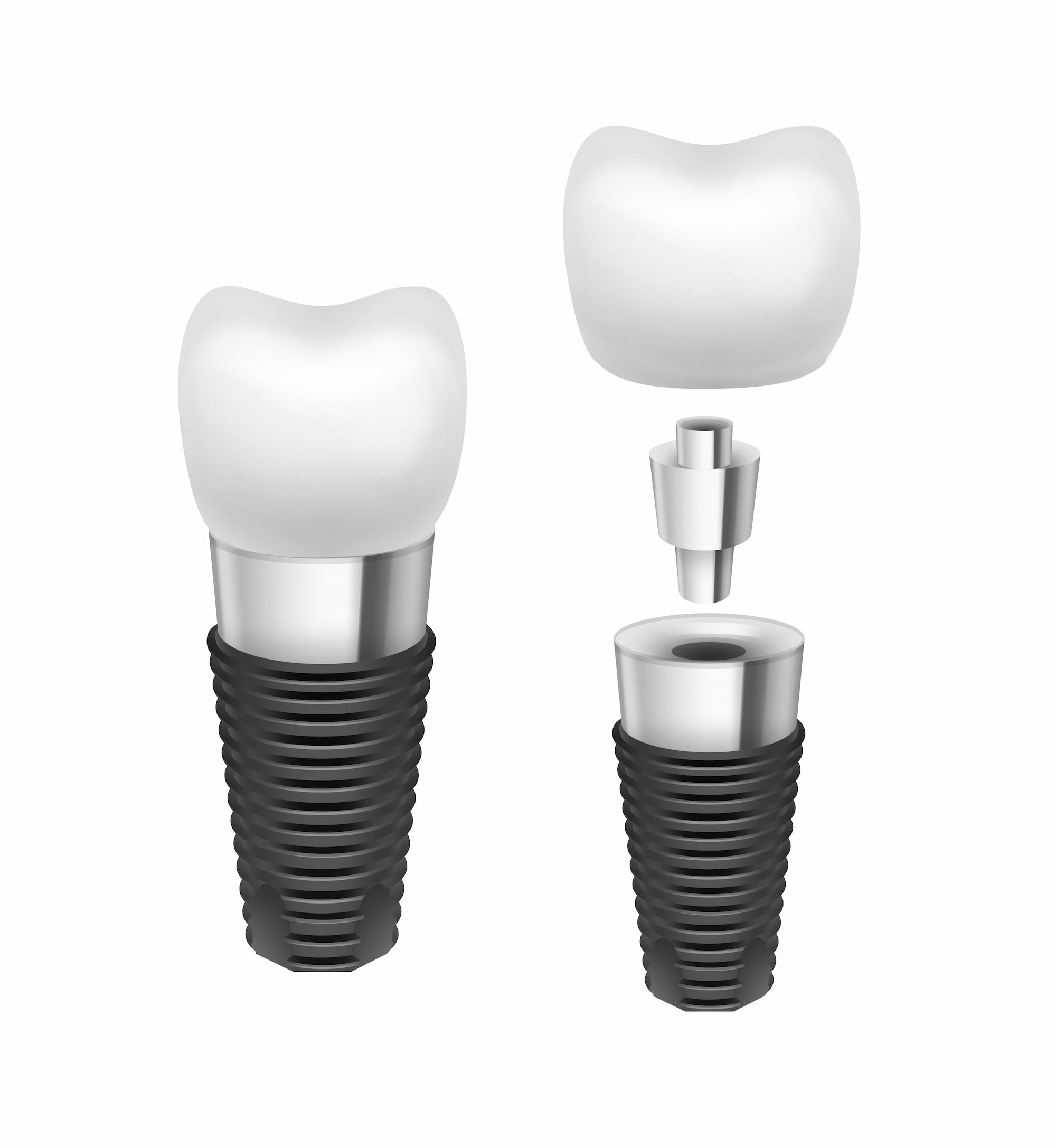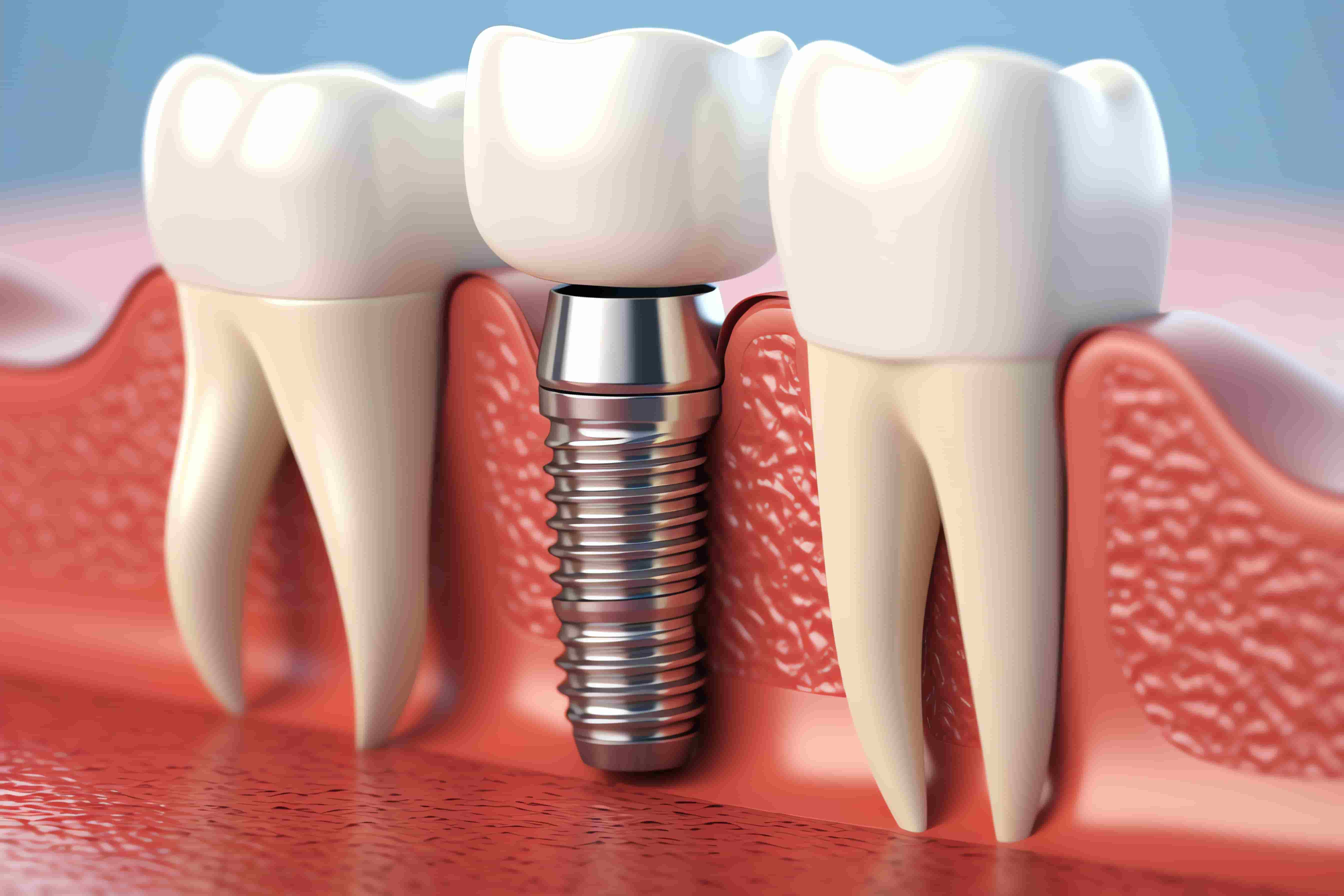What is a dental implant?
A dental implant is an artificial tooth root, typically made from titanium or ceramic (zirconium), that is surgically inserted into the jawbone. It provides a stable base to support a dental crown, bridge, or denture, offering a long-term solution for missing teeth.


How do dental implants work?
Dental implants work by integrating with the jawbone through a process called osseointegration. Over time, the implant fuses with the bone, creating a secure foundation for the placement of a replacement tooth or teeth, allowing for natural function and appearance.
When would I need a dental implant?
You may need a dental implant if you have one or more missing teeth, or if your natural teeth are damaged or decayed beyond repair. Implants can also support dentures and bridges, providing improved stability and function compared to traditional methods.
What are the implant systems?
Implant systems refer to the different types of implants and techniques used in dental implantation. These can include single-tooth implants, implant-supported bridges, full-arch restorations, and options like All-on-4 and All-on-6, which provide secure support for a full arch of teeth with fewer implants. Each system is chosen based on the patient’s specific needs, bone density, and the number of teeth being replaced.
How does the dental implant procedure work?
The dental implant procedure involves several steps:
- Consultation and evaluation, including X-rays or CT scans to assess the jawbone.
- Implant placement surgery, where the implant is inserted into the bone.
- Healing period (3-6 months), during which osseointegration occurs.
- Placement of the abutment and dental crown to complete the restoration.
How long does the whole procedure take?
The dental implant process generally takes 3-6 months, depending on individual healing times and the need for additional procedures like bone grafts. However, some modern implant systems significantly reduce the healing period and accelerate the restoration process, allowing the entire procedure to be completed within 7-10 days in some cases. The timeline includes implant placement, healing, and the final placement of the crown or prosthetic tooth.
How much do the implants cost?
The cost of dental implants varies depending on the complexity of the case, the type of implant used, and whether additional procedures such as bone grafts are required. Our pricing table can be found here.
Are there any risks for dental implants?
While dental implants have a high success rate, there are some potential risks, such as infection, nerve damage, implant failure due to insufficient bone integration, or sinus issues (for upper jaw implants). These risks are minimal with experienced surgeons and proper aftercare.
Why should I have my dental implants in Turkey?
Turkey is a popular destination for dental implants due to its highly skilled dentists, state-of-the-art facilities, and significantly lower costs compared to many Western countries. Additionally, Turkey adheres to strict health regulations and standards, ensuring high-quality care and successful outcomes. Be sure to always ask the clinic where you intend to receive treatment for a state-issued health service certificate.
Will my dental implants last a lifetime?
With proper care and maintenance, dental implants can last a lifetime. This includes regular dental check-ups, good oral hygiene practices, and avoiding habits like smoking that can affect the longevity of the implants.
What if I don’t have enough bone available for successful dental implantation?
If you do not have enough bone available for dental implants, bone grafting procedures can be performed to build up the jawbone, allowing for successful implant placement. In some cases, alternative implant techniques, such as zygomatic implants, may also be an option.
What are the dental implant brands we use?
We use high-quality, internationally recognized implant brands known for their durability and successful integration, such as Straumann, Nobel Biocare, Neodent, Medentika, Evoss & Megagen. These brands ensure long-term performance and high patient satisfaction.
Reasons why dental implants are safe in Turkey
Dental implant procedures in Turkey are safe due to the country’s strict regulations on healthcare providers, advanced dental technology, and experienced dental professionals. Clinics are required to meet international safety standards and maintain quality care.